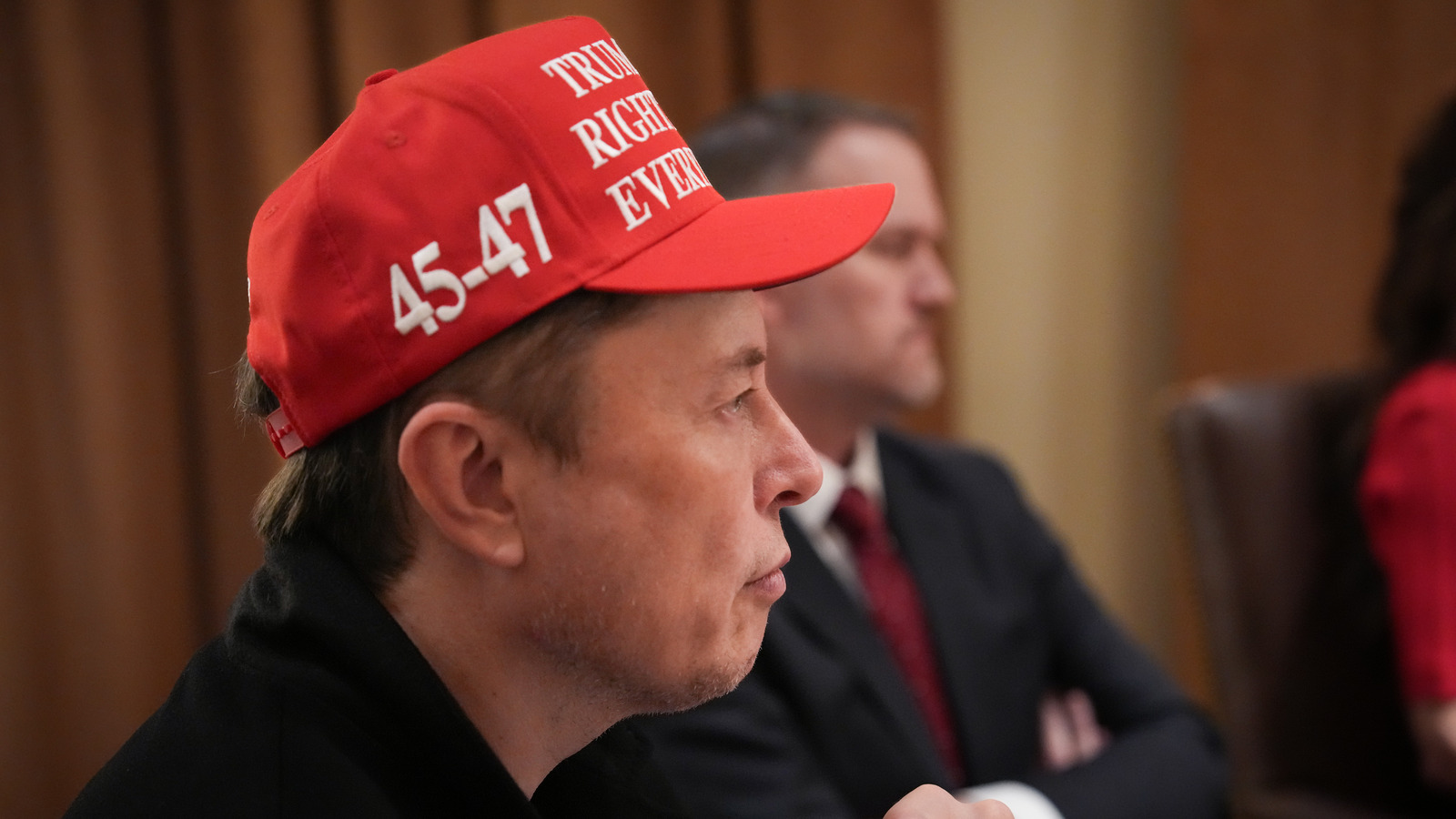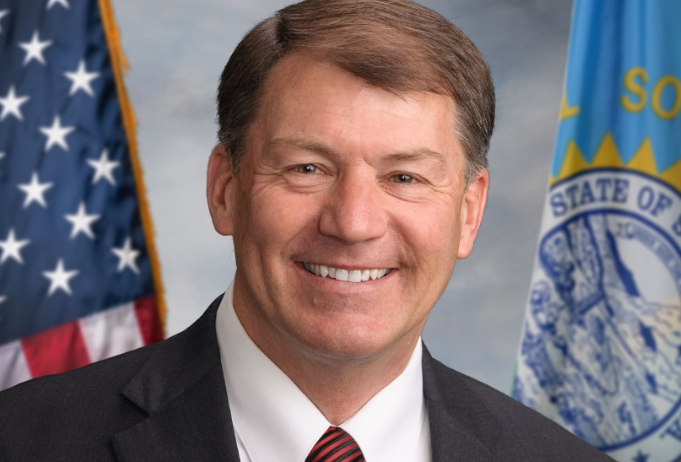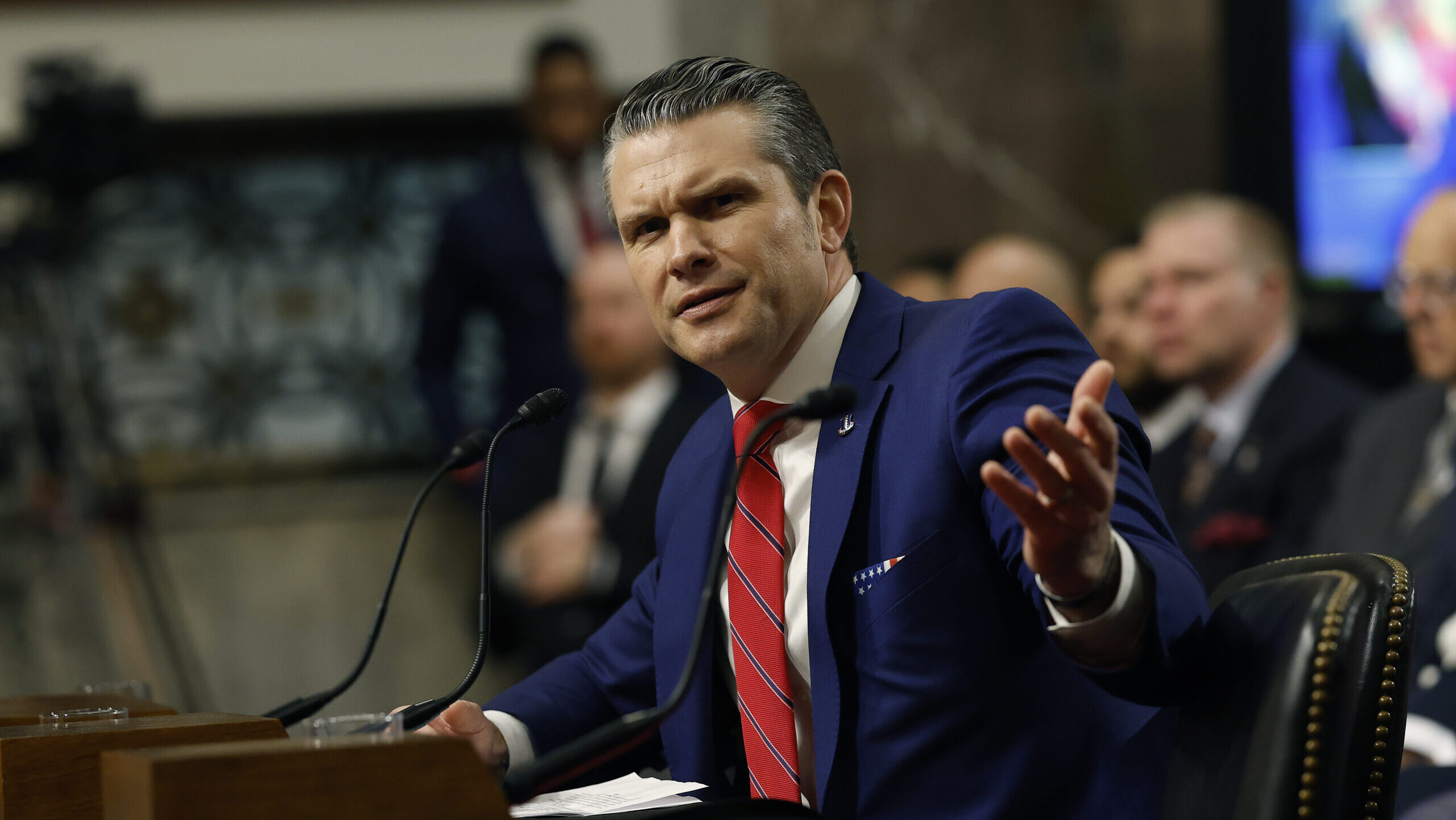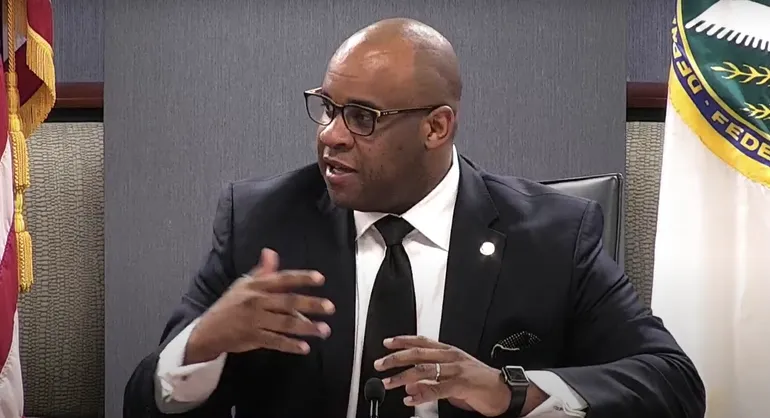Navy Secretary John Phelan kills Biden-era climate plan
The original plan was spearheaded in 2022 by the Navy’s then-senior civilian for energy and installations.


Secretary of the Navy John Phelan greets crewmembers attached to the fast-attack submarine USS Iowa (SSN 797) during a commissioning ceremony in Groton, Connecticut, April 5, 2025. (US Navy/Joshua Karsten)
WASHINGTON — Navy Secretary John Phelan said he’s rescinding a Navy plan focused on combating climate change established by the Biden administration.
“Today, I’m focusing on warfighters first and I’m rescinding the Biden administration’s climate action program,” he said in a video posted to X on Tuesday. “Our focus needs to be on lethality and our warfighters.”
That plan was spearheaded by Meredith Berger, formerly the senior Navy civilian overseeing energy, installations and environment, during the Biden administration in 2022.
“2030 is the marker that we laid down initially because the scientific community and others have said that this is the decade of decisive action and so we’re taking that very seriously,” she told reporters at the time. Defense Department officials had specifically expressed concern that the Marine Corps’s famous East Coast training grounds, Parris Island in South Carolina, could be largely underwater by 2099.
RELATED: An island, an amphib, a typhoon: Navy hosts climate-focused war game
Parris Island is far from the only location of concern. NPR in September 2023 reported the city of Norfolk, Va., home to one of the Navy’s critical public shipyards, was drawing up plans for a $2.6 billion floodwall to protect residents against the threat of rising sea levels. Norfolk also sits adjacent to Newport News, where shipbuilder HII assembles the service’s aircraft carriers.
It’s not the first time a Republican administration has canned a Pentagon effort surrounding climate change. Ray Mabus, who served as SECNAV during the Obama administration, put forward an effort he dubbed the “Great Green Fleet,” which mostly focused on warships relying on alternative sources of energy. But Republican skepticism quickly trashed the project when President Donald Trump took the White House in 2017.
When asked about the possibility of a successive administration discarding the climate plan, Berger told Breaking Defense at the time, “We’re driving towards success and making sure that we are the best warfighters, and so I hope that that is not a polarizing objective, as I think everybody wants to see mission success.”

































































![[Podcast] Behind the Breakthroughs: How Almac Powers Clinical Trial Success with Care](https://imgproxy.divecdn.com/5lAJkli_KcGt1FSsw4EaegjgP76IHREqYEWbhNBJOXw/g:ce/rs:fit:770:435/Z3M6Ly9kaXZlc2l0ZS1zdG9yYWdlL2RpdmVpbWFnZS9CaW9QaGFybWFEaXZlXzEzNDZfeF83MjlfQXJ0d29yay5qcGc=.webp)
































































































.jpg)







